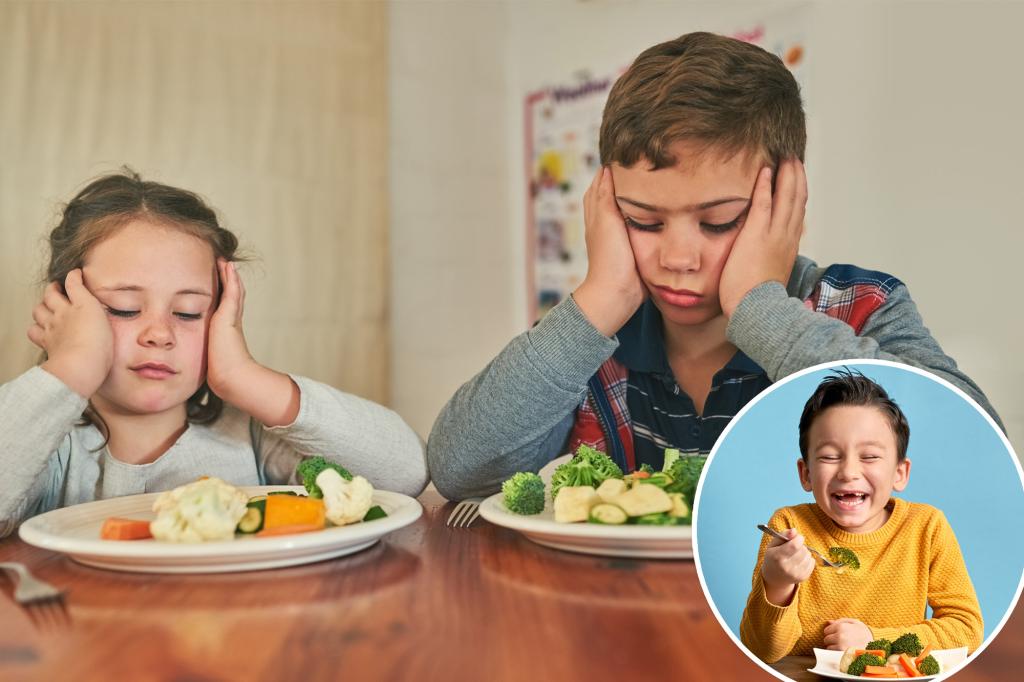The challenge of persuading children to embrace healthy eating habits, particularly the consumption of fruits and vegetables, has long been a familiar struggle for parents and caregivers. Traditional methods, ranging from the promise of sweet rewards to the threat of punitive measures, often prove ineffective and can even cultivate negative associations with nutritious foods. However, a groundbreaking study by researchers at Humboldt University in Berlin and the University of Nairobi has unveiled a novel and surprisingly effective approach: the power of storytelling. By weaving enchanting narratives that imbue fruits and vegetables with magical properties, this innovative technique has demonstrated a remarkable ability to positively influence children’s dietary choices, offering a promising new avenue for promoting healthy eating habits from an early age.
The study, published in the February 2025 issue of the journal Appetite, involved 80 kindergarten children divided into two groups. One group was captivated by a specially crafted fairy tale in which the protagonist triumphs over illness thanks to the magical healing powers of vegetables. The other group listened to a similar story, but one that made no mention of food whatsoever. Over the subsequent two weeks, both groups were presented with a daily snack platter offering a choice of fruits, vegetables, cakes, or cookies. The researchers meticulously observed the children’s selections to gauge the impact of the magical vegetable narrative.
The results were striking. A remarkable 80% of the children who had been exposed to the story about magical vegetables exhibited a significant shift in their snack preferences, opting for fruits and vegetables over the less healthy alternatives. This positive change persisted for up to three weeks after the initial storytelling session, indicating a sustained impact on their dietary inclinations. In contrast, the children who heard the non-food-related story displayed no alteration in their typical snacking habits, continuing to favor cookies and cakes over the healthier options. This stark difference highlights the potent influence of narrative-based interventions in shaping children’s food preferences.
The findings of this study underscore the remarkable potential of storytelling as a powerful tool for promoting healthy eating in young children. A single 20-minute storytelling session proved sufficient to induce a substantial and enduring shift towards healthier food choices. This approach capitalizes on the inherent receptiveness of young minds to imaginative narratives, leveraging the power of storytelling to create positive associations with fruits and vegetables. By embedding these foods within a captivating narrative framework, the study effectively transformed them from mundane dietary requirements into objects of intrigue and desirability.
The implications of this research are far-reaching, particularly in the context of the growing global concern over unhealthy eating habits among children. In a world increasingly dominated by processed foods and sugary snacks, finding effective strategies to encourage children to embrace healthier options is of paramount importance. This study presents a promising new avenue for intervention, demonstrating that a simple, engaging, and cost-effective method like storytelling can have a profound and lasting impact on children’s dietary choices. By harnessing the power of narrative, parents, educators, and health professionals can potentially cultivate a positive relationship with healthy eating from an early age, laying the foundation for a lifetime of well-being.
Furthermore, the study’s findings suggest that this narrative-based approach holds significant promise for addressing the escalating global challenge of childhood obesity and other diet-related health issues. By fostering a positive and engaging association with fruits and vegetables, storytelling can potentially counteract the pervasive influence of unhealthy food marketing and create a more conducive environment for healthy eating choices. This approach offers a refreshing departure from traditional methods of dietary intervention, which often rely on restrictive measures or external rewards and punishments. Instead, it empowers children to make healthy choices for themselves by fostering an intrinsic appreciation for nutritious foods. The simplicity and scalability of this storytelling intervention make it a particularly compelling strategy for promoting healthy eating habits on a wider scale.


